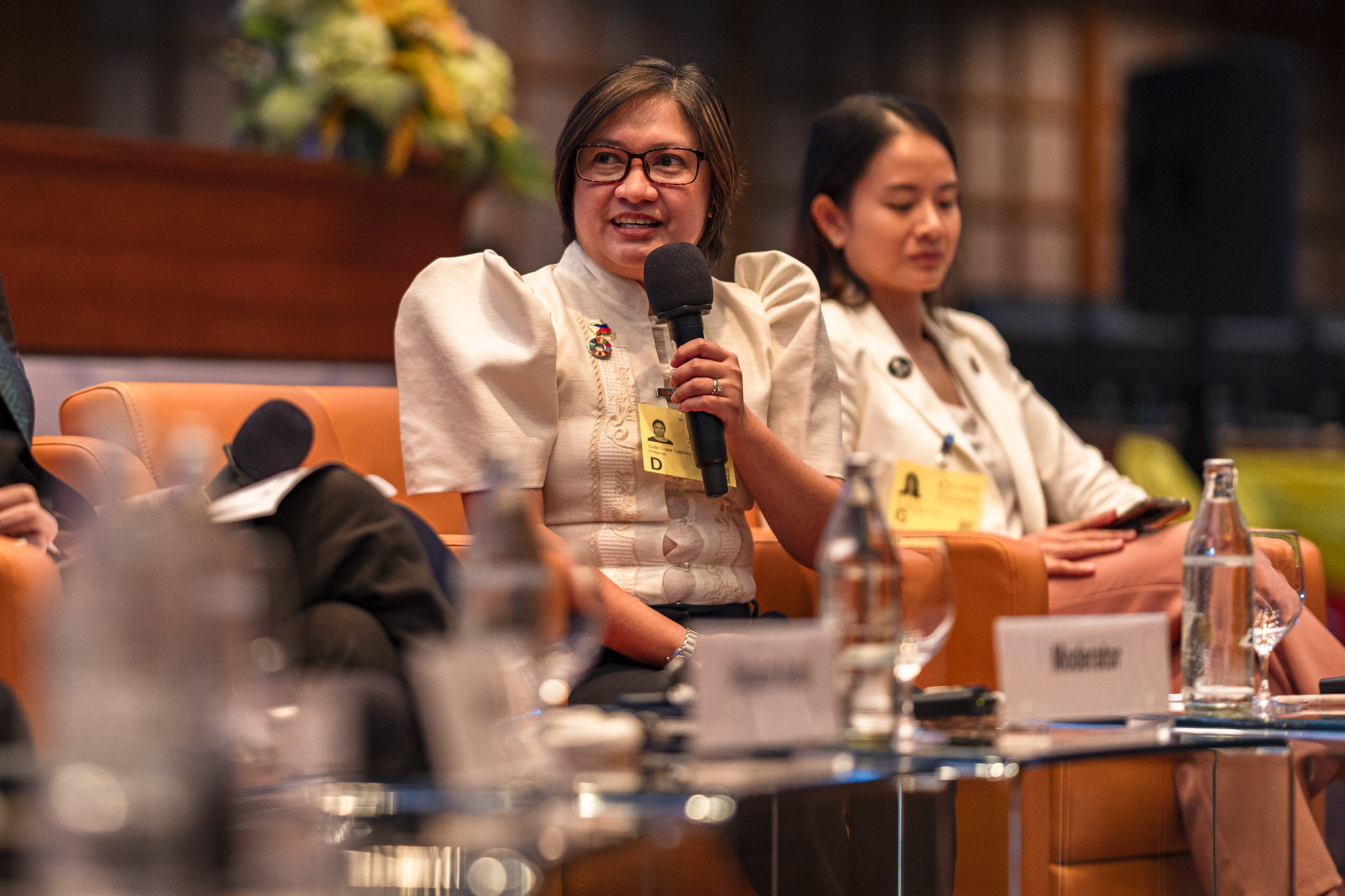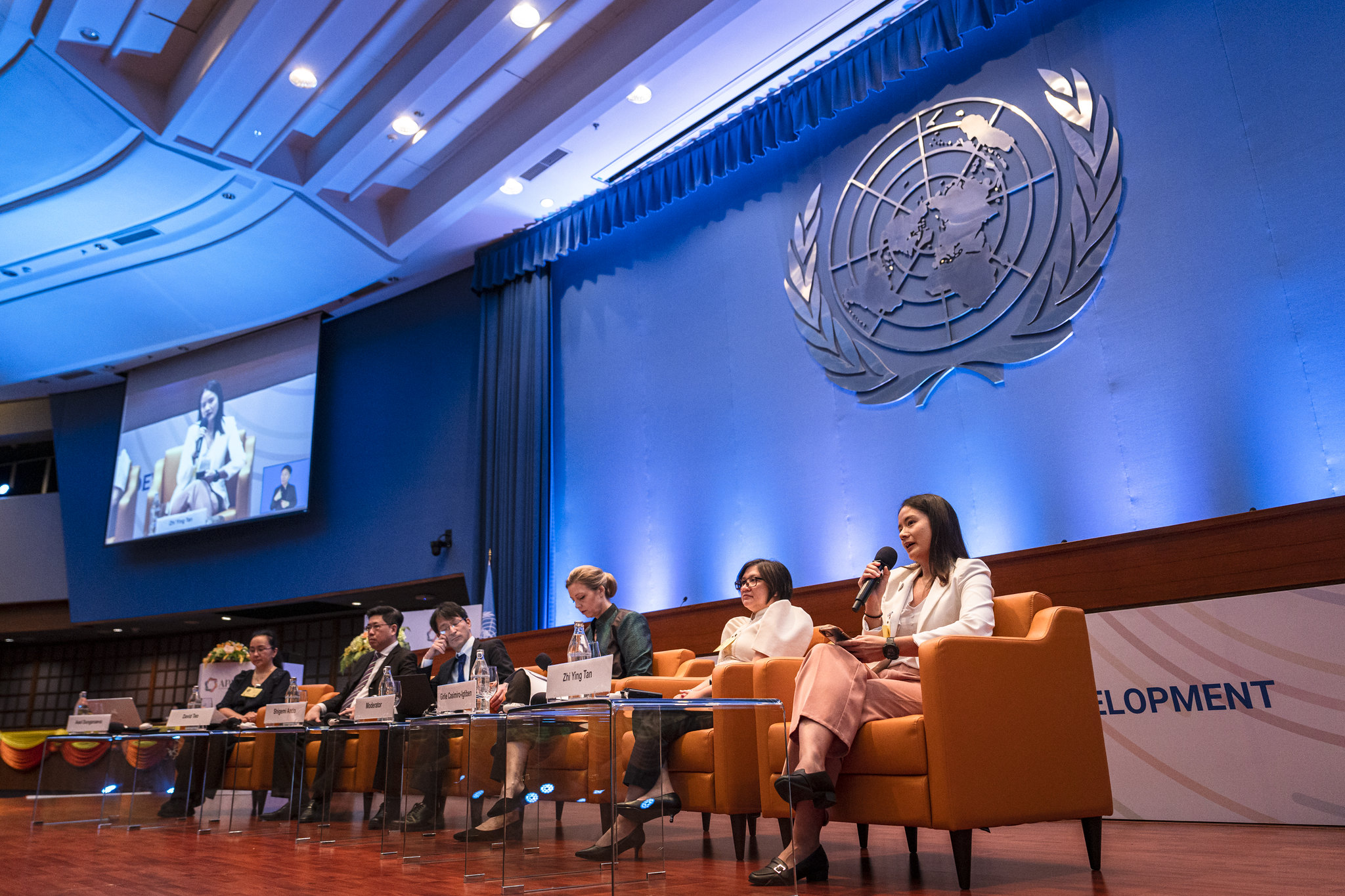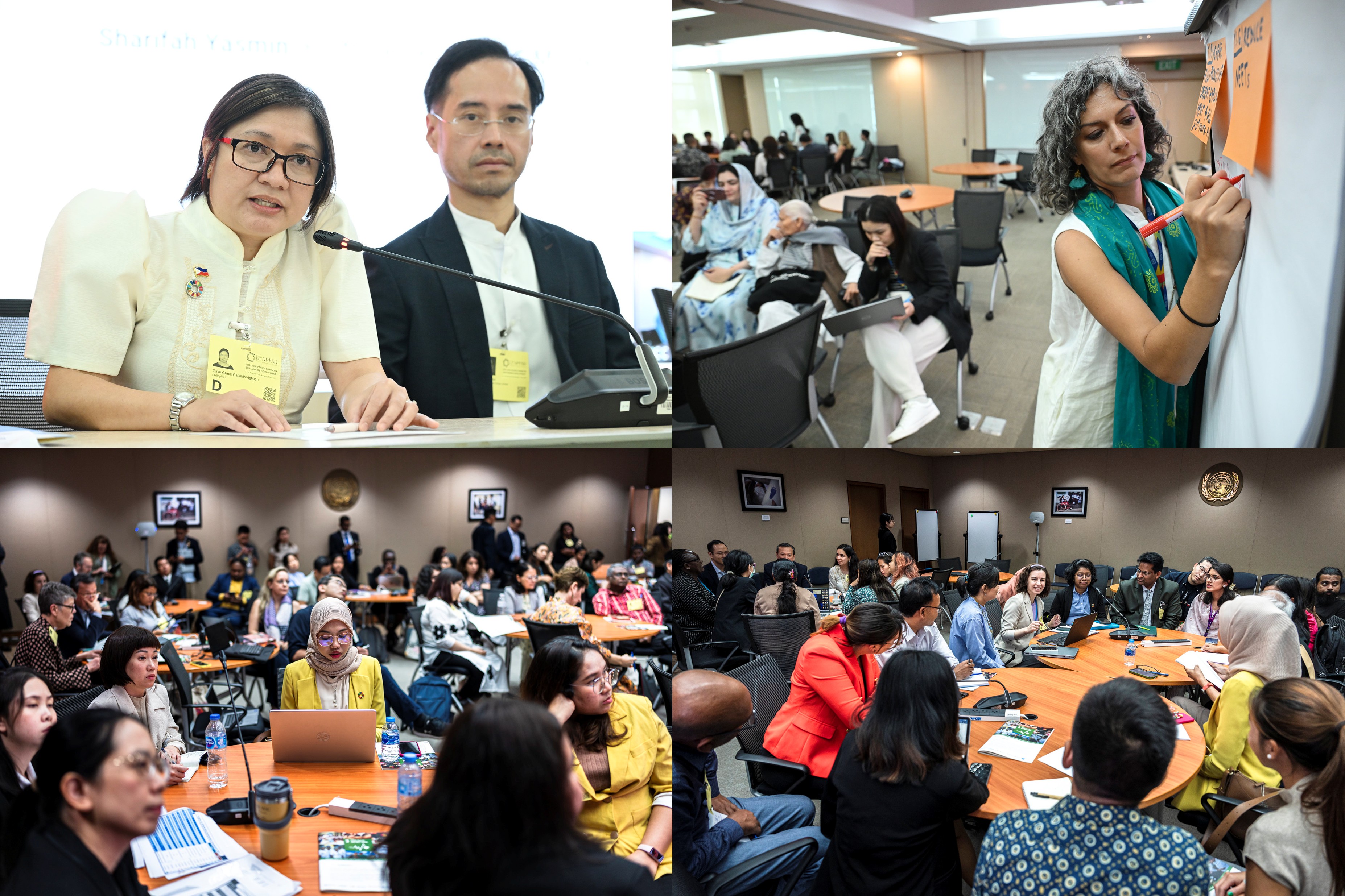BANGKOK, 28 FEBRUARY 2025 – The Philippines underscored its dedication to inclusive and sustainable development at the 12th Asia-Pacific Forum on Sustainable Development (APFSD), held from 25 to 28 February 2025, in Bangkok, Thailand. The Forum was convened by the United Nations Economic and Social Commission for Asia and the Pacific (UNESCAP), which gathered governments, the private sector, civil society organizations, and academe to review the regional progress on the 2030 Agenda for Sustainable Development.

(Left) Executive Secretary of UNESCAP Armida Salsiah Alisjahbana opens the 12th APFSD, (Right photo, middle) H.E. Millicent Cruz Paredes, Ambassador and Permanent Representative of the Philippines to UNESCAP conveys the Philippine Country Statement (Photos by UNESCAP)
UN Under-Secretary-General and ESCAP Executive Secretary H.E. Armida Salsiah Alisjahbana opened the forum, emphasizing that while sustained economic growth in the Asia-Pacific lifted millions out of poverty and set a strong foundation for further progress on the Sustainable Development Goals (SDGs), with only five years remaining until 2030, countries must prioritize high-impact initiatives to drive progress across multiple sectors to achieve the SDG targets.
H.E. Millicent Cruz Paredes, Ambassador and Permanent Representative of the Philippines to UNESCAP, highlighted the country's efforts in universal healthcare, gender equality, labor and employment initiatives, and the natural capital accounting of ecosystem services as key contributions toward the SDGs. She reaffirmed the Philippines’ commitment to the SDGs and emphasized the need for strong partnerships and data-driven policies to accelerate progress on the SDGs.

(Middle) NEDA Director Girlie Casimiro-Igtiben shares the Philippines’ stakeholder engagement on the SDGs (Photo by UNESCAP)
On 26 February, National Economic and Development Authority (NEDA) Director Girlie Grace Casimiro-Igtiben participated in a panel discussion, where she shared the Philippines' efforts and experiences in fostering multi-stakeholder engagement for SDG acceleration and the fourth Voluntary National Review (VNR) of the Philippines. She highlighted the Philippines’ Stakeholders’ Chamber on the SDGs established in 2022 as a dedicated platform for engaging the private sector, academia, media, and vulnerable sectors in SDG implementation and the VNR process.
Director Casimiro-Igtiben shared that elevating stakeholder engagement from basic information-sharing to active consultation and partnership has been key to SDG acceleration. Through the Stakeholders’ Chamber, the Philippine government is better able to craft innovative policy recommendations and mobilize resources towards the implementation of the SDG.

Panelists discuss their insights on the implementation of the SDGs through voluntary national reviews (Photo by UNESCAP)
Director Casimiro-Igtiben further shared that the members of the chamber are also invited to provide their inputs and recommendations to the Philippines' VNR report to ensure that the Philippines' VNR is a result of a whole-of-society endeavor. The best practices and successful strategies and solutions shared by members of the chamber, particularly those that can be scaled or replicated across different regions or sectors, will be incorporated by the Philippines’ fourth VNR in 2025.

(Top-left) NEDA Director Girlie Casimiro-Igtiben serving as a panel speaker on SDG Roundtable 8 on Decent Work and Economic Growth, (Top-right, Bottom-right, Bottom-left) brainstorming sessions on innovative responses in support of SDG 8. (Photos by UNESCAP)
The Philippines also took part in a multi-stakeholder roundtable to review the region’s progress on SDG 8 (Decent Work and Economic Growth). These discussions were aimed at developing policy recommendations to accelerate the implementation of SDG 8. The Philippines emphasized the importance of skills development, lifelong learning, innovation, and digital competitiveness. The Philippines also highlighted key national initiatives, including the Trabaho Para sa Bayan Act, which promotes job generation and quality employment, and the Enterprise-Based Education and Training Framework, which bridges education and industry needs to enhance workforce development.

(Left) Government Rapporteurs share the policy recommendations of their roundtable discussions in support of SDGs 3, 5, 8, 14, and 17; (Right) NEDA Supervising Economic Development Specialist Ms. Aretha Janin Garcia reports the discussions on SDG Roundtable 8 (Photos by UNESCAP)
On 27 February, NEDA Supervising Economic Development Specialist Ms. Aretha Janin Garcia served as the government rapporteur of the SDG 8 roundtable, synthesizing key points on intergenerational challenges and gender disparities in employment, and the need for skills training in the transition to a green economy. The report underscored the importance of protecting labor rights, leveraging data for informed policymaking, fostering multi-stakeholder dialogue, and promoting social protection measures, including for vulnerable groups, to foster decent work and economic growth.
As the 2030 Agenda heads toward its final years of implementation, the Philippines reaffirmed its commitment to accelerate SDG implementation through inclusive, evidence-based policymaking and strengthened partnerships. The country’s participation in the 12th APFSD reaffirmed its role as a regional advocate for sustainable development, exemplified by its meaningful engagement with partners at the local, national, regional, and international levels.
The outcomes of the 12th APFSD will inform the deliberations of the High-level Political Forum (HLPF) in New York in July 2025, which reviews sustainable development progress at the global level. END.

